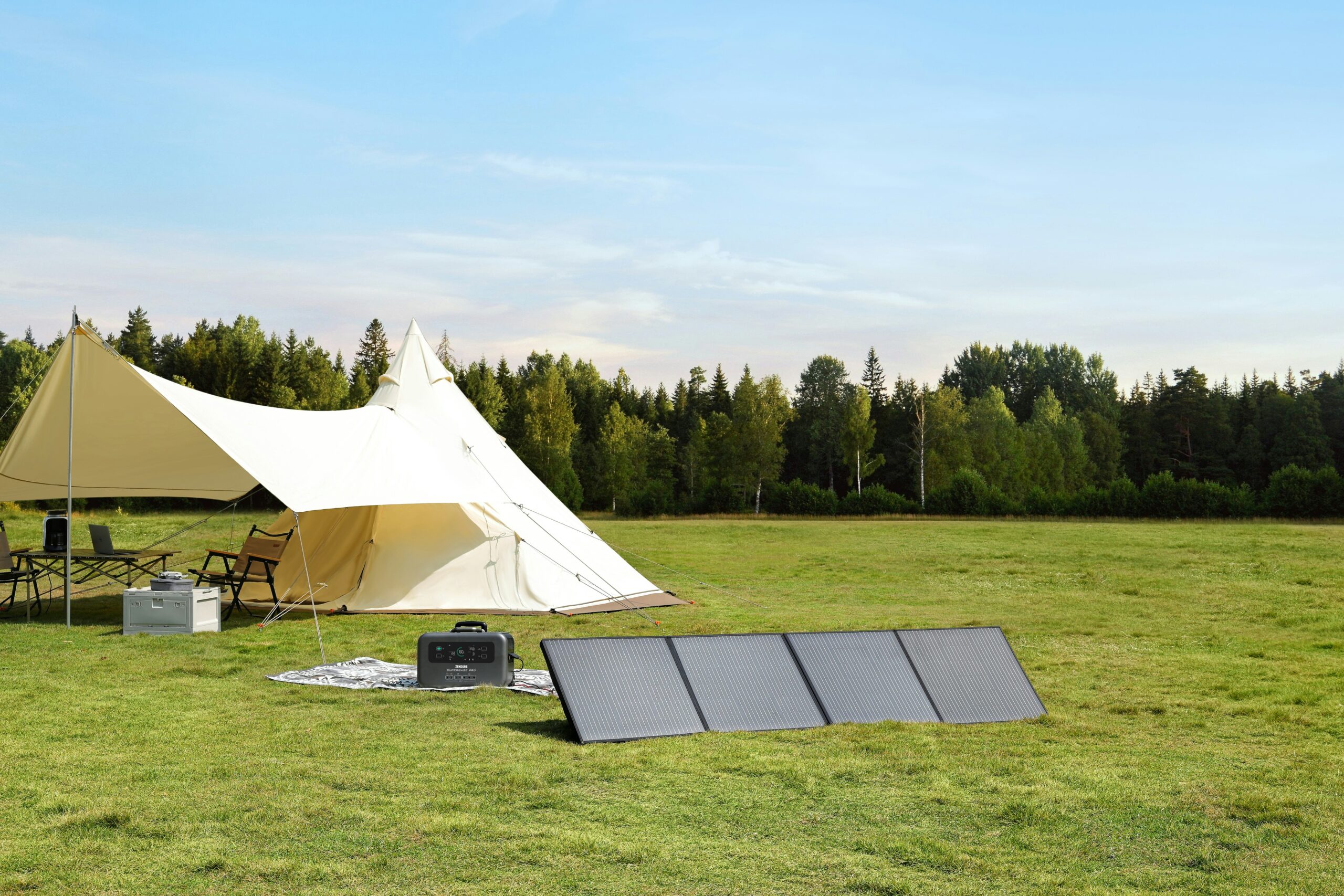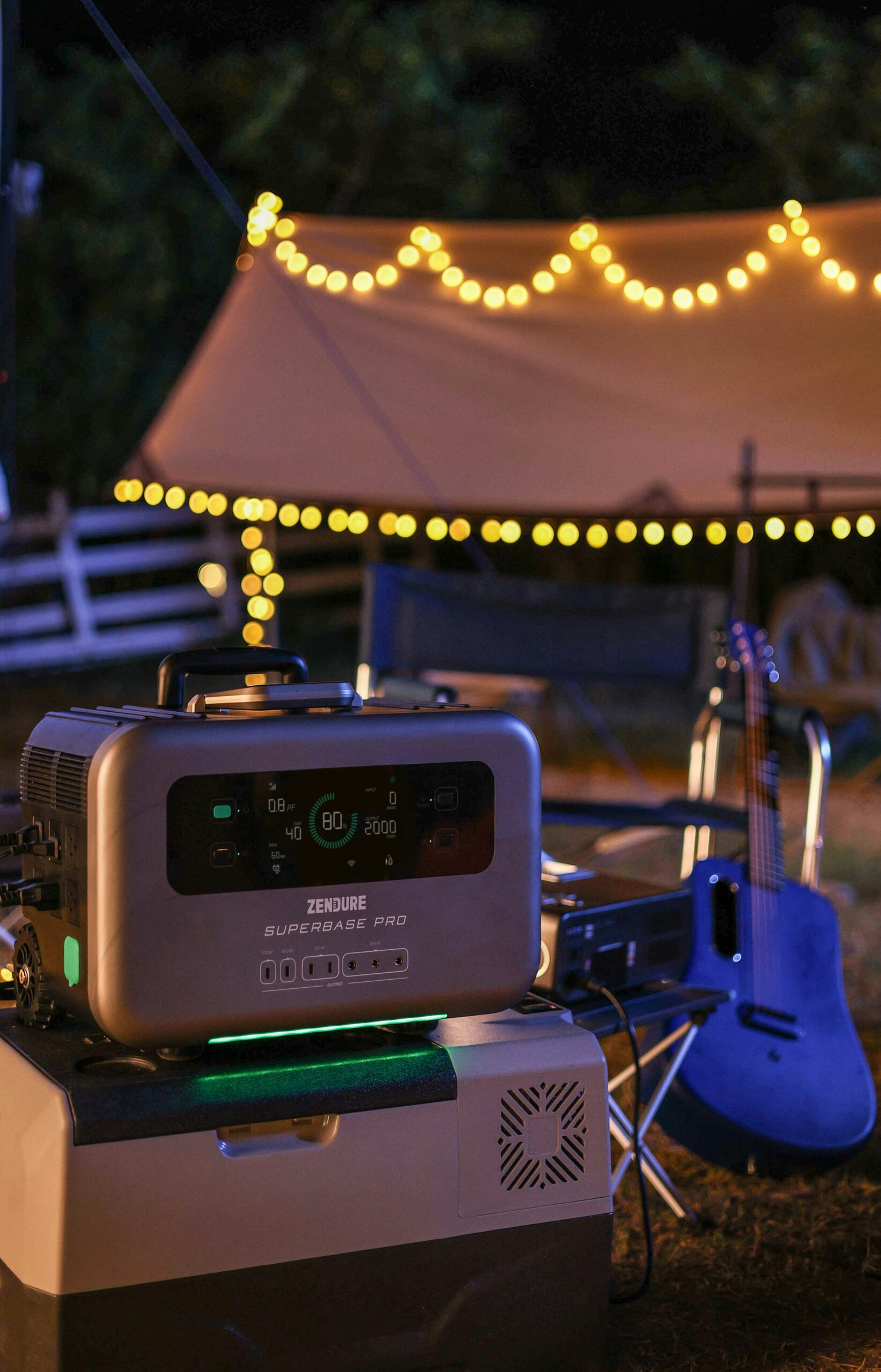Imagine the thrill of embarking on a camping adventure near the majestic Mount Shasta. The crisp mountain air, the awe-inspiring views, and the serene surroundings beckon you to escape into nature's embrace. As you make preparations for your trip, the thought of bringing your own generator may have crossed your mind. But fret not, my friend, for I am here to provide you with all the information you need. In this article, we will explore whether or not you can bring your own generator to the camping facilities near Mount Shasta, ensuring that your camping experience is not only unforgettable but also filled with modern conveniences.

Understanding Camping Generator Regulations
Federal and state laws
When it comes to camping, it's essential to be aware of the regulations surrounding the use of generators. Both federal and state laws may govern the usage of generators in camping facilities. These laws aim to strike a balance between enjoying the convenience of a generator and preserving the tranquility of the natural environment. It's crucial to familiarize yourself with these regulations to ensure you remain in compliance during your camping trip.
Rules specific to Mount Shasta camping facilities
In addition to federal and state laws, Mount Shasta camping facilities may have their own specific rules regarding the use of generators. These rules are put in place to maintain a peaceful and enjoyable camping experience for everyone. Some facilities may have restrictions on generator usage during specific hours or require generators to be a certain distance from campsites. It's important to research and abide by these rules to avoid any conflicts or disruptions during your stay at Mount Shasta.
Laws pertaining to environmental noise and emission controls
In an effort to protect the environment and minimize noise pollution, there are laws in place that regulate the noise levels and emissions produced by generators. These laws aim to balance the need for power with the preservation of the surrounding natural resources. It's essential to choose a generator that complies with these regulations to ensure responsible usage and minimize any negative impact on the environment.
Why Bringing a Generator Could Be Necessary
Usage for cooking appliances
One of the main reasons why bringing a generator could be necessary is for powering cooking appliances. While some camping facilities may provide communal cooking facilities, having your own generator allows you the freedom to cook your meals using your preferred appliances. From electric stoves to portable grills, a generator can provide the necessary power to make your camping culinary experience even more enjoyable.
Power source for recreational or comfort devices
Camping is all about relaxation and enjoying the great outdoors, and for many, that includes bringing along recreational or comfort devices. Whether it's charging your phone to stay connected, powering a portable fan to stay cool on hot summer nights, or running a small television to unwind in the evening, a generator can be a convenient power source for your various devices.
Backup power source in case of emergencies
While camping is typically a joyful and worry-free experience, emergencies can still arise. A generator can serve as a reliable backup power source in case of unforeseen circumstances such as power outages or equipment failures. Having a backup power source can provide peace of mind and ensure you're prepared for any unexpected situations that may arise during your camping trip.
Choosing The Right Generator For Camping
Size and weight considerations
When choosing a generator for camping, it's important to consider the size and weight of the unit. Since you'll likely be transporting the generator to and from your camping site, a compact and lightweight option is often the most practical choice. Additionally, smaller generators are easier to store and can take up less space, making them more convenient for camping trips.
Fuel type: Diesel, Gasoline or Propane
Generators can be powered by different fuel types such as diesel, gasoline, or propane. Each fuel type has its advantages and considerations. Gasoline-powered generators are widely available and generally more affordable, but they may require more frequent refueling. Diesel-powered generators are known for their efficiency and longer runtime but may be noisier than other options. Propane-powered generators offer cleaner burning fuel and are safer to transport, but propane canisters add to the overall weight of your camping gear.
Noise level and dB rating
One important factor to consider when selecting a generator is the noise level and decibel (dB) rating. To maintain a peaceful camping experience for yourself and fellow campers, it's important to choose a generator with a low noise level. Look for generators specifically designed for camping or with “quiet” or “silent” features. Generators with a lower dB rating produce less noise and are more considerate of the natural surroundings.
Power output capacity
The power output capacity of a generator determines the number and type of devices it can effectively run. Consider the power requirements of the devices you intend to use while camping, such as lights, appliances, and electronics. Make sure the generator you choose can supply enough wattage to power all your essential equipment. It's advisable to select a generator with slightly higher power output capacity than your anticipated needs to account for any unexpected power surges or additional devices you may want to connect.
Etiquette For Using Generators At Campgrounds
Observance of quiet hours
When using a generator at a campground, it's crucial to respect the designated quiet hours. Many campgrounds have specific times during which generators must be turned off to preserve the tranquility of the environment. Familiarize yourself with the campground's quiet hours and adhere to them diligently. This will ensure a peaceful nighttime ambiance for everyone to enjoy.
Placement of generator to reduce noise disturbance
To minimize noise disturbance caused by your generator, it's important to consider its placement. Position the generator as far away as possible from other campers' tents or RVs to reduce the noise they may hear. Additionally, placing the generator on a soft surface or using a noise-absorbing mat can help dampen the sound. Consider using natural barriers such as trees or bushes to further mitigate noise.
Proper handling and storage of fuel
When using a generator, it's essential to handle and store fuel properly. Follow all safety guidelines provided by the manufacturer, including safe refueling practices and storage recommendations. Ensure that fuel containers are tightly sealed to prevent spills or leaks. Properly storing fuel away from open flames or heat sources is crucial for the safety of yourself and others around you.

Preparing Your Generator For Camping
Performing a maintenance check
Before heading out on your camping trip, it's important to perform a thorough maintenance check on your generator. Inspect all parts, including the fuel tank, oil levels, and air filters. Clean or replace any dirty or worn components to ensure optimal performance. Having a well-maintained generator reduces the risk of breakdowns and ensures a reliable power source throughout your camping adventure.
Ensuring it is effectively silenced
To maintain a peaceful camping experience, it's essential to ensure your generator is effectively silenced. Consider using a generator enclosure or a soundproof box to reduce noise levels further. These accessories can help muffle the sound emitted by the generator and minimize noise disturbance for both you and neighboring campers. Investing in such silencing measures demonstrates your consideration for others and the environment.
Packing appropriate extension cords and accessories
When preparing for your camping trip, don't forget to pack the necessary extension cords and accessories for your generator. Ensure that the extension cords are suited for outdoor use and long enough to reach your desired appliances or devices. It's also beneficial to have spare cords and adapters on hand in case of emergencies or unexpected requirements. Don't forget to pack any additional accessories specific to your generator model, such as maintenance tools or spare parts.
Transportation and Storage of Generators
Safe loading and unloading
When transporting your generator to and from your camping site, it's vital to ensure safe loading and unloading. Secure the generator properly in your vehicle to prevent it from shifting during transit. Use appropriate tie-downs and straps to secure the generator and ensure it remains stable. When unloading, take caution to avoid any sudden movements or strain on your body to prevent injuries.
Weatherproof storage options
To protect your generator from the elements while camping, consider investing in a weatherproof storage option. A durable generator cover or storage shed can shield the unit from rain, snow, or extreme temperatures. Properly storing your generator when not in use helps prolong its lifespan and ensures it remains in optimal working condition for future camping trips.
Safety measures during transportation
In addition to secure loading and unloading, it's important to follow some safety measures during transportation. Ensure the generator's fuel tank is adequately sealed to prevent leaks and spills during transit. If traveling with a propane-powered generator, ensure all connections are secure and in compliance with safety regulations. Keep the generator in an upright position to avoid damage to internal components and ensure safe operation upon arrival at your camping destination.

Operational Safety Tips for Generators
Avoiding CO poisoning
Carbon monoxide (CO) poisoning is a grave concern when using generators. To prevent this potentially fatal gas from accumulating, never operate a generator in an enclosed space, such as inside a tent or vehicle. Place the generator outdoors in a well-ventilated area, ensuring there is sufficient airflow. Be aware of wind direction and position the generator accordingly to prevent wind carrying the fumes towards your camping area.
Proper ventilation
Proper ventilation is essential for the safe operation of a generator. Ensure that the area surrounding the generator has ample airflow to prevent heat buildup and aid in the dissipation of exhaust fumes. Avoid placing the generator near flammable materials or close to windows or vents. Adequate ventilation reduces the risk of overheating and ensures the safe operation of the generator.
Keeping the generator dry
While most generators are designed to withstand outdoor conditions, keeping the unit dry is crucial for its longevity and safe operation. Protect the generator from rain, snow, or excessive moisture by using a generator cover or storing it in a weatherproof enclosure. It's also important to refrain from touching the generator with wet hands or when standing on wet surfaces to prevent electric shocks.
Environment-friendly Practices
Reducing unnecessary power usage
To minimize your impact on the environment and conserve energy, practice reducing unnecessary power usage. Turn off lights, appliances, or devices when not in use. Opt for energy-efficient alternatives and utilize natural lighting whenever possible. Small efforts in conservation can make a significant difference in preserving the camping environment for future generations.
Use of solar-powered generators
Consider the use of solar-powered generators as an environmentally-friendly alternative. Solar generators utilize the sun's energy to produce electricity, eliminating the need for fossil fuels and reducing emissions. Investing in a solar-powered generator not only provides a clean and renewable energy source but also contributes to the sustainability of camping and outdoor activities.
Methods to minimize noise pollution
Noise pollution can disrupt wildlife and fellow campers, impacting the overall camping experience. Implement measures to minimize noise pollution from your generator, such as using a quiet generator specifically designed for camping. Additionally, limiting generator usage to essential times, observing quiet hours, and considering alternative power sources can help reduce noise and create a more harmonious camping environment.
Types of Generator-friendly Camping Facilities at Mount Shasta
Private campgrounds
Private campgrounds often offer more flexibility when it comes to using generators. Many private campgrounds have designated generator-friendly areas, allowing campers to enjoy the convenience of a generator without disturbing others. These campgrounds may have specific rules and regulations to follow, so it's important to inquire and understand the guidelines before bringing your generator.
Public campgrounds
Public campgrounds at Mount Shasta typically have regulations in place regarding the use of generators. Some campgrounds may have designated generator areas or specific times during which generators are permitted. It's advisable to check with the respective park authorities to familiarize yourself with their specific rules and restrictions. By adhering to these regulations, you can enjoy a harmonious camping experience while still benefiting from the use of a generator.
RV parks and facilities
RV parks often accommodate larger RVs and provide electrical hookups, making the use of generators less necessary. However, if you prefer boondocking or using your generator for additional power, some RV parks and facilities allow generator usage during certain hours. Research specific RV park regulations and inquire about generator usage guidelines to ensure a smooth and enjoyable stay.
Alternatives to Generators
Solar panels and wind energy
In recent years, advancements in solar panel and wind energy technology have made them viable alternatives to traditional generators. Solar panels can harness the sun's energy to power various devices, making them an eco-friendly choice. Similarly, wind turbines can generate electricity from the wind's power. These renewable energy sources offer quiet and sustainable alternatives, reducing noise pollution and minimizing the environmental impact of camping.
Battery-powered camping gear
Battery-powered camping gear offers another alternative to using generators. From lanterns and fans to portable chargers and radios, there are a wide array of battery-powered options available. Investing in rechargeable batteries and solar-powered chargers can further enhance the sustainability of battery-powered camping gear. By embracing battery-powered alternatives, you can enjoy the convenience of powered devices without the noise or emissions associated with generators.
Taking advantage of onsite amenities
Another alternative to bringing your own generator is taking advantage of onsite amenities at Mount Shasta camping facilities. Many campsites offer communal cooking facilities, restroom facilities, and electrical hookups for RVs. By utilizing these amenities, you can reduce the need for a personal generator and still enjoy a comfortable camping experience. It's important to check the amenities provided by your chosen camping facility in advance to plan accordingly.
In conclusion, bringing a generator to camping facilities near Mount Shasta can offer many benefits, including powering cooking appliances, providing a power source for recreational devices, and acting as a backup power source in emergencies. When choosing a generator, factors like size, fuel type, noise level, and power capacity should be considered. Etiquette for using generators at campgrounds includes observing quiet hours, placing the generator appropriately, and handling fuel properly. Preparing your generator involves maintenance checks, silencing, and packing necessary accessories. Transportation and storage require safe practices, while operational safety tips focus on avoiding CO poisoning, proper ventilation, and keeping the generator dry. Environment-friendly practices involve reducing unnecessary power usage, considering solar-powered alternatives, and minimizing noise pollution. Mount Shasta offers various types of generator-friendly camping facilities, including private campgrounds, public campgrounds, and RV parks. Lastly, alternatives to generators include solar panels, battery-powered camping gear, and utilizing onsite amenities. By understanding the regulations and following proper etiquette, you can enjoy the convenience of a generator while respecting the environment and other campers at Mount Shasta.
